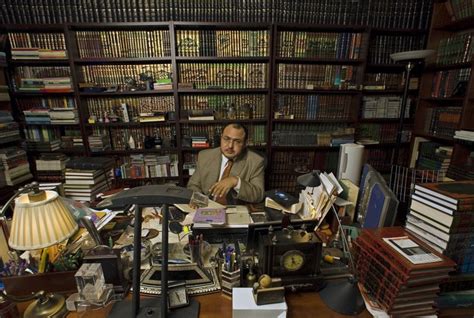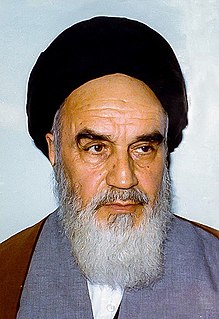A Quote by Hooman Majd
It's a tradition in Islamic society to issue pardons at the end of Ramadan.
Related Quotes
In the West nowadays, it's very common to talk about the Judeo- Christian tradition. It's a common term. The term is relatively modern but the reality is an old one. One could with equal justification talk about a Judeo-Islamic tradition or a Christian-Islamic tradition. These three religions are interlinked in many signification ways, which marks them off from the rest of the world. And I think there is a growing awareness of this among Christians and among Jews, and even to some extent to some Muslims. That's happening for obvious reasons.
When you look at food as an ethical issue in the Christian tradition, you don't find very much about it. You don't find, as you do in the Jewish or Islamic or Hindu traditions, a lot of restrictions saying you can eat this but you can't eat that. But what you do find is the idea that gluttony is a sin and that it's something that we ought to be ashamed of.
When anyone studies a little or pays a little attention to the rules of Islamic government, Islamic politics, Islamic society and Islamic economy he will realize that Islam is a very political religion. Anyone who will say that religion is separate from politics is a fool; he does not know Islam or politics.
When we think about Islamic feminism, it is not just about women's rights. It's about a more progressive and tolerant expression of Islam in the world for all people. Women's rights is one aspect of it, it's not the end-all, but I also think that the women's issue is the strongest entry point that we've got to challenging extremism. You raise a woman's issue and you get the backs of the conservatives up against the wall faster than just about any other issue in our community. It's the fastest path that we've got to making change happen.
The Honorable Elijah Muhammad taught us to eat fish during the month of Ramadan. He is breaking us away from meats. That was a wonderful way to do it and use the month of Ramadan for fish. I did that too during one of my Ramadan's. We would just eat fish.Breaking away from land animals is a right thing to do.
Christians got a lot of work to do. But, the spirit of Dorothy Day is alive. Martin Luther King is still alive. Malcolm X and the prophetic Islamic tradition is still alive. We can't lose sight of those prophetic religious folk who, even given their kin in the same tradition, says, you all are wrong on this, but we're still in the same tradition.
Tradition is an element that enters into play with destiny, because you are born into a particular family - Jewish or Islamic or Christian or Mexican - and your family determines to some extent what you are expected to become. And society is always there attempting to determine the role we will play within it.
The entire Islamic world condemned Iran. Nowadays, because of the unwarranted invasion of Iraq by Bush and Blair, which was a completely unjust adventure based on misleading statements, and the lack of any effort to resolve the Palestinian issue, there is massive Islamic condemnation of the United States.
Sufis have always been those that have tried to purify the ethics of Islam and society. And they don't have their hands cut off from the external action at all. For example, the bazaar in which the Sufis were very strong always dominated economic life in Islamic world. They could give a much more sane and Islamic form of activity when the economic life of Islam moved out of the bazaar to new parts of Islamic cities with modernized Muslims, who took it in another light and it became very, very anti Islamic, and much against many of the most profound practices of Islamic societies.
When I first raised the issue of the so-called Islamic State at the Munich Security Conference in February, speaking about its economy, its flexibility and pathology, people thought I was trying to scare them. But now we have experienced just that. If al-Qaida was version 2.0 of terror, then the Islamic State is version 5.0.






























